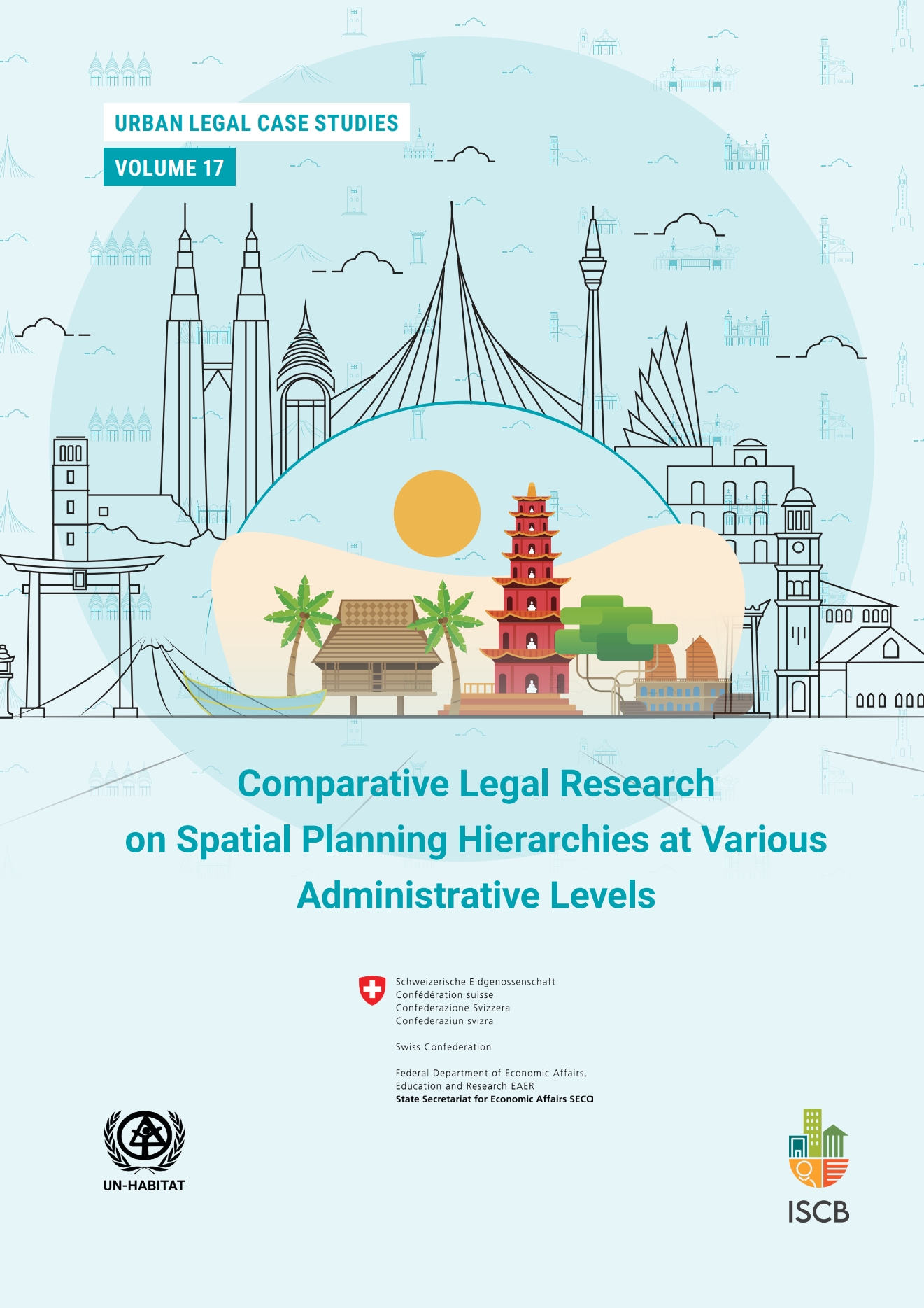Comparative Legal Research on Spatial Planning Hierarchies at Various Administrative Levels: Bangladesh, Japan, Malaysia, Panama, Paraguay, Republic of Korea, South Africa, Thailand, Philippines.

30 September 2025
Vicky Quinlan
English
Research report
Asia, North America, South America
This report is a comparative legal study conducted by UN-Habitat under the Institutional Strengthening and Capacity Building (ISCB) project in Viet Nam, funded by the Government of Switzerland (SECO). It analyses the spatial planning laws and governance frameworks of nine countries—Bangladesh, Japan, Malaysia, Panama, Paraguay, South Africa, Thailand, and the Philippines. The report examines how each country defines and implements planning mandates at national, regional, and local levels, and how these systems promote integrated, participatory, and effective urban development. It highlights the importance of clear institutional roles, adequate resources, and strong coordination mechanisms across different levels of government. Through international case studies, it shows how countries like Japan and South Africa achieve better planning outcomes through multilevel governance and stakeholder engagement, while others such as the Philippines, Panama, and Malaysia demonstrate the value of legally aligned planning instruments.
Abstract based on original source.


Comments